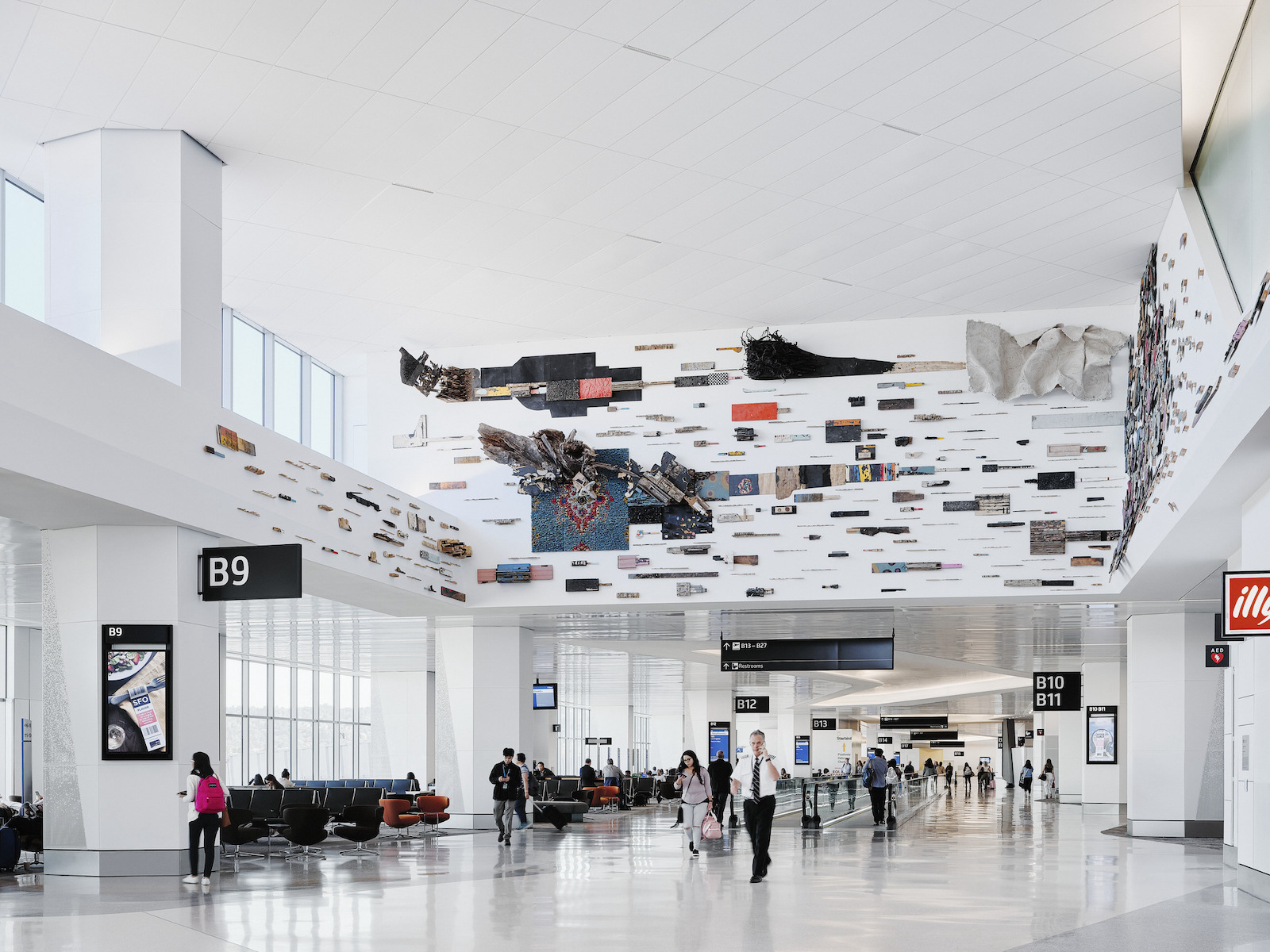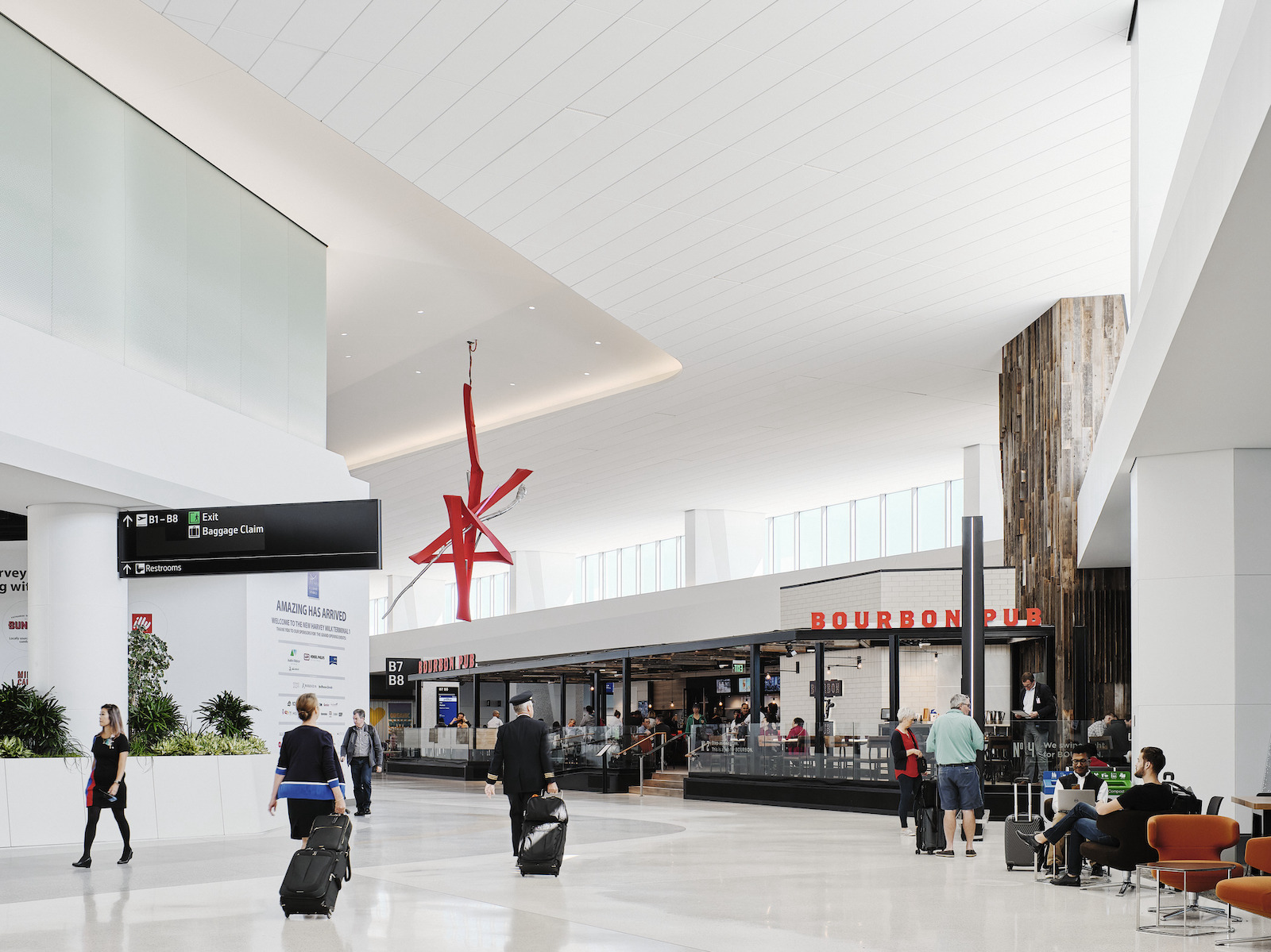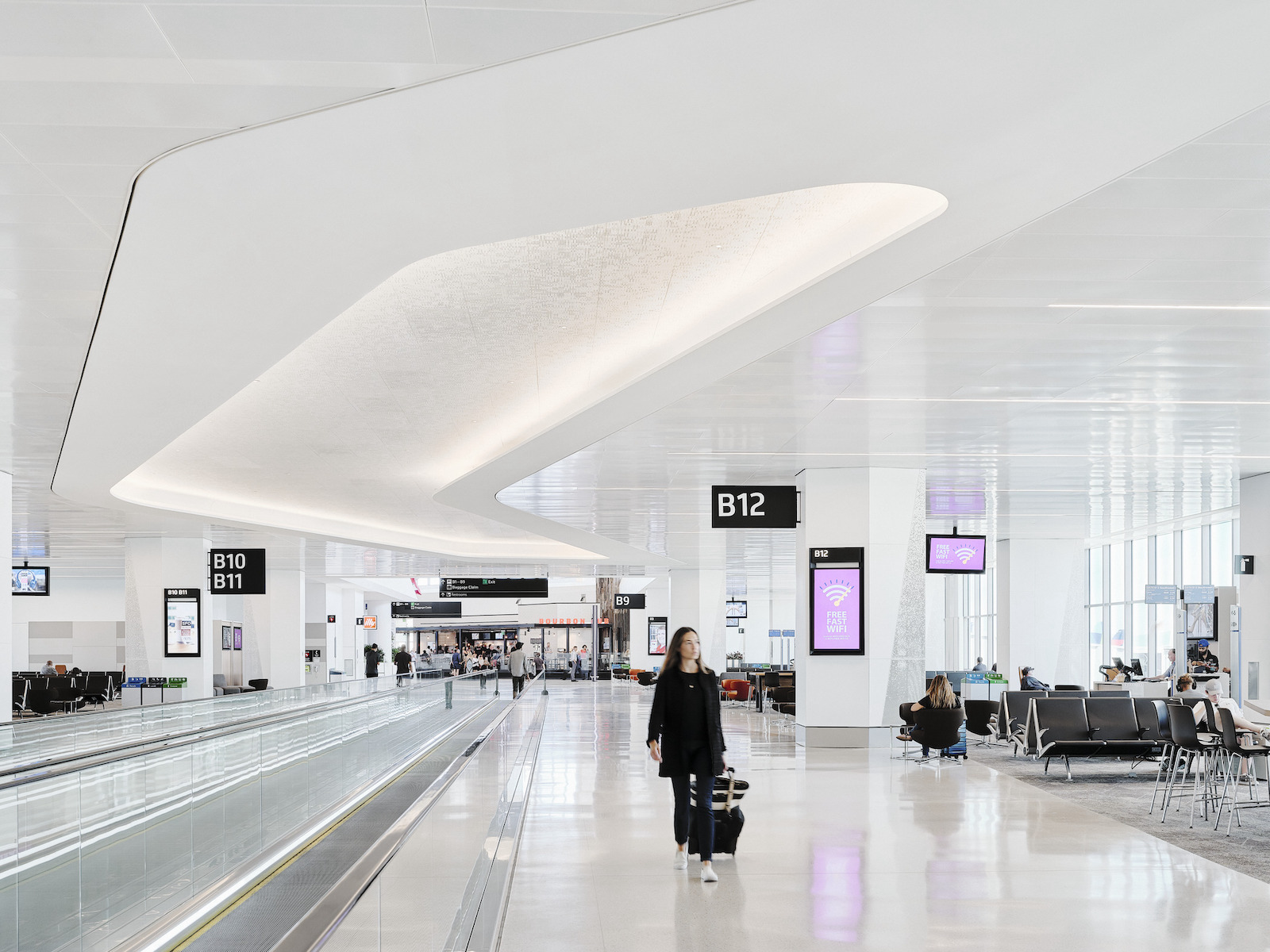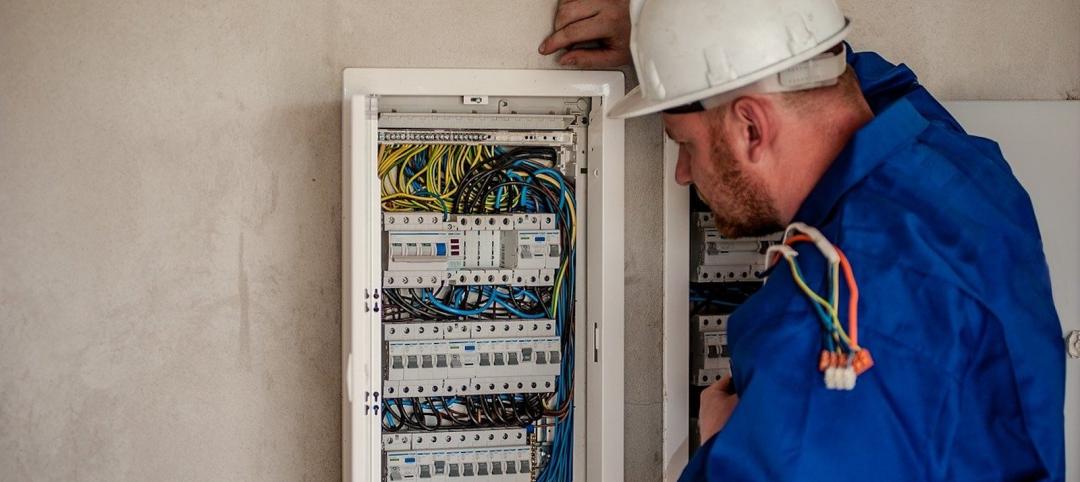The San Francisco International Airport (SFO) announced that Harvey Milk Terminal 1 has become the first airport terminal in the world to earn Platinum certification using the latest standards from the Leadership in Energy and Environmental Design (LEED) program.
The LEED v4 raises the bar for the design, construction, and high-performance structures. SFO earned this certification for Boarding Area B in Harvey Milk Terminal 1. This includes the 25-gate concourse, concession space, and connector to the U.S. Customs Federal Inspection Area.

HIGHLIGHTS OF THE HARVEY MILK TERMINAL PROJECT
- A tote-based Independent Carrier System (ICS) to manage checked baggage, the first in the U.S., which uses 50% less energy and is easier to operate and maintain than previous systems
- Self-energizing (regenerative) elevators recycle energy, rather than wasting it as heat
- Go-Slow escalators and moving walkways that reduce speed when not in use to save energy
- Radiant heating and cooling to complement displacement ventilation to provide energy efficiency, improved indoor air quality and enhanced passenger comfort
- Dynamic glazed windows that change with the sun’s location, to reduce glare and improve comfort
- Large windows harnessing daylight to reduce the need for electric lighting
- Controllable, dimmable, long-life light-emitting diode (LED) fixtures throughout the facility
- Low-flow, hands-free bathroom fixtures and faucets save water in our drought-prone state
- Roof-mounted photovoltaic panels, providing renewable power for the facility
- Highly efficient outdoor air filtration system to remove pollutants and odor to provide healthier indoor environments with minimal efficiency impacts
- Building materials and furnishings with low-volatile organic compound (VOC) emissions
- Selection of products, systems and materials with the least environmental or planetary impact based upon Health Product Declarations (HPDs) and Environmental Product Declarations (EPDS)
- Integrated Building Management System measures energy and water use and adjusts equipment to be more efficient
- Seamless access to all facilities, including public transit, via the AirTrain electric people mover, which eliminated over 600,000 miles of bus trips annually
- Recycling and diversion of approximately 95% of construction waste from landfill

“We are truly proud to be the first airport in the world to earn LEED v4 Platinum certification,” said Airport Director Ivar C. Satero in the release. “This achievement continues a tradition of leadership in sustainable facilities that includes the first LEED Gold airport terminal in the United States, and the world’s first zero net energy facility at an airport. My thanks go out to the entire project team for continuing to push the envelope for what airports can accomplish to support our environmental goals.”
PROJECT TEAM FOCUSED ON COLLABORATION
A collaboration between HKS, Arup, Woods Bagot, ED2 International, Austin Commercial, Webcor, and Kendall Young Associates, the design takes advantage of every innovation available, beginning with repurposing the existing Boarding Area B to achieve the new 225,000-sf building.
Materials and systems were selected based on having the least environmental impact, such as carbon-sequestering concrete and nontoxic carpet tiles and finishes.
Other features include a sophisticated baggage carousel and photovoltaic panels on the roof, which generate the energy required for operations.
The project management team includes:
- BAB Design-builder: Austin Commercial & Webcor Builders Joint Venture with HKS / Woods Bagot / ED2 International / Kendall Young Associates
- BAB Sustainability Coordinator: Arup
- BAB Construction Manager: WSP / AGS
Related Stories
Codes and Standards | Mar 24, 2022
New York senate moves to speed up fossil fuel ban in new buildings
Lawmakers in the New York State Senate are backing a proposal to ban fossil fuels in new building construction three years sooner than a plan proposed by Gov. Kathy Hochul.
Codes and Standards | Mar 23, 2022
High office vacancies have cities rethinking downtown zoning
As record-high office vacancies persist in U.S. urban areas, cities are rethinking zoning policy.
Codes and Standards | Mar 22, 2022
Dept. of Energy awards $32 million for next-generation building retrofits
The U.S. Dept. of Energy has awarded a total of $32 million for more than 30 next-generation building retrofit projects that will dramatically improve affordable housing technologies, according to a DOE news release.
Legislation | Mar 18, 2022
New framework to help site community solar projects released
The Solar Energy Industries Association (SEIA) released a new report to aid policymakers in siting community solar projects.
Codes and Standards | Mar 17, 2022
Dept. of Energy seeks input on building-integrated photovoltaic systems
The U.S. Department of Energy (DOE) Solar Energy Technologies Office (SETO) and Building Technologies Office (BTO) recently issued a request for information to gather input on technical and commercial challenges and opportunities for building-integrated photovoltaic (BIPV) systems.
Legislation | Mar 16, 2022
Weak federal commercial real estate rules will hamper seizing Russian assets
Lax disclosure regulations that have made the U.S. a global hot spot for money laundering via real estate holdings will make it difficult for officials to seize properties from Russian oligarchs.
Codes and Standards | Mar 15, 2022
First company awarded Fitwel Certification in Senior Housing for Occupant Health & Wellness
The Springs at Greer Gardens in Eugene, Ore., is the first property to earn a Fitwel global health certification under the newly created senior housing scorecard.
Codes and Standards | Mar 10, 2022
HOK offers guidance for reducing operational and embodied carbon in labs
Global design firm HOK has released research providing lab owners and developers guidance for reducing operational and embodied carbon to meet net zero goals.
Codes and Standards | Mar 7, 2022
Late payments in the construction industry rose in 2021
Last year was a tough one for contractors when it comes to getting paid on time.
Codes and Standards | Mar 7, 2022
Massachusetts proposed energy code changes don’t ban gas
Proposed changes to the Massachusetts energy code would provide incentives for builders to fully electrify buildings, but not impose a ban on natural gas hookups.

















